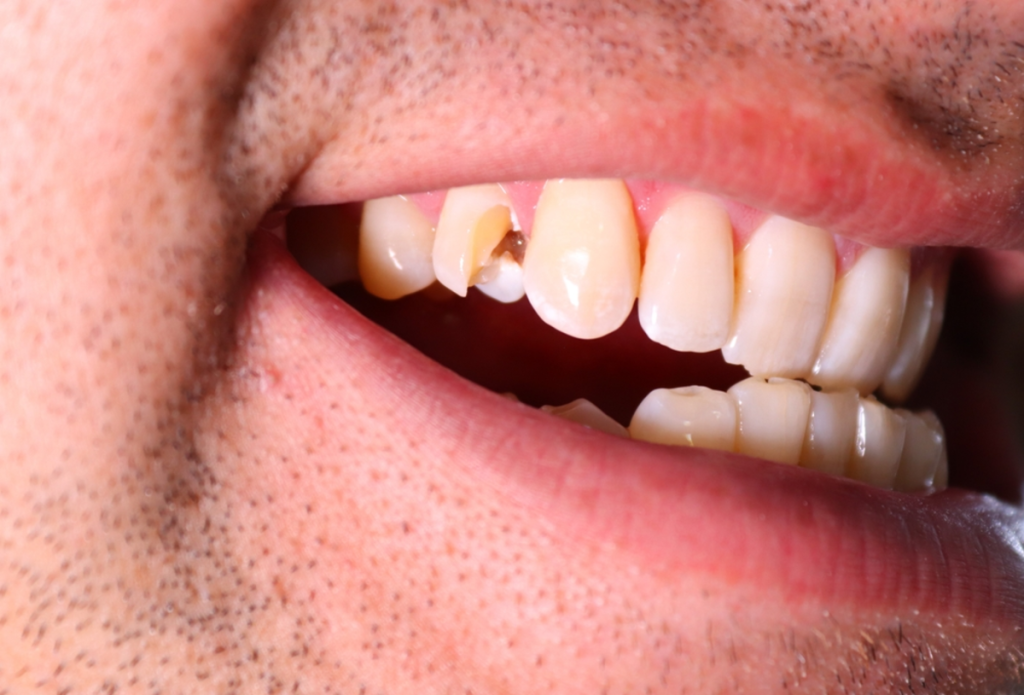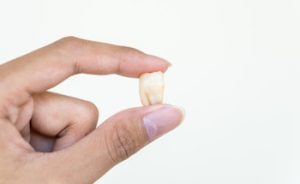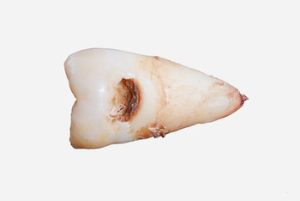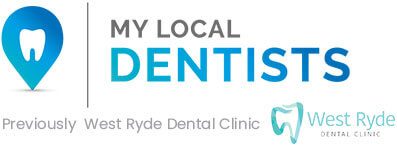Broken Wisdom Tooth: Causes, Symptoms and Treatment Options

Teeth are the last molars to come out, usually between 17 and 25.
They are known as wisdom teeth, the largest teeth in the mouth. Most people have four of them, two in the upper jaw and two in the lower jaw.
However, only some need wisdom teeth, which may be missing due to evolutionary changes.
Broken wisdom teeth, which can occur due to trauma, decay, or natural wear and tear, can be extremely painful and uncomfortable.
When dealing with a broken wisdom tooth, you must know what steps to take.
In this blog post, we’ll review everything you need to know about broken wisdom teeth, including the causes, signs, and available treatment options.
We’ll also cover why it’s important to visit a dentist immediately if you suspect your wisdom tooth is broken.
So, read on to learn more.
Causes of Broken Wisdom Teeth
Dental Decay
One of the most common causes of wisdom teeth breaking is dental decay.
Wisdom teeth are often hard to clean since they are located in the back of the mouth.
As a result, they can easily harbour bacteria, leading to decay, cavities, and, eventually, a broken tooth.
Maintaining good oral hygiene practices such as brushing twice daily, flossing, and using mouthwash is important.
Trauma to the Mouth
Accidents can happen, and a fracture may occur if a hard blow to the face causes you to damage a wisdom tooth.
Trauma can also occur while playing contact sports or in a car accident.
If you experience any trauma to the mouth, it’s always necessary to see your dentist immediately.
Munching on Hard or Sticky Foods
Another cause of broken wisdom teeth is eating hard or sticky foods. Some of these foods include popcorn kernels, candy, and ice.
These foods put excessive pressure on your wisdom teeth, which can cause them to break or become loose.
Symptoms of Broken Wisdom Teeth

Sharp or Throbbing Pain:
A broken wisdom tooth can cause sharp or throbbing pain in the affected area.
The pain can be constant or intermittent and increase when you bite down or chew.
Depending on the severity of the break, you may also feel pain in your jaw or ear. If you experience any of these symptoms, seeing a dentist immediately is essential.
Sensitivity When Biting or Chewing
You may experience sensitivity when biting or chewing if you have a broken wisdom tooth.
This is because the tooth is not structurally sound and can move around when you put pressure on it.
You may also experience a dull ache or pressure in the affected area.
Feeling Roughness or a Hole in the Affected Tooth:
If you run your tongue over a broken wisdom tooth, you may feel a rough patch or hole in the tooth.
This indicates that the tooth has been damaged and may require dental attention.
Changes in the Colour or Shape of the Tooth
A broken wisdom tooth can also change in colour or shape. The tooth may appear darker than the surrounding teeth, or it may be distorted or jagged.
These changes can be a sign that the tooth is fractured or shattered.
Swelling and Tenderness in the Gums
When a wisdom tooth breaks, it can cause swelling and tenderness in the surrounding gums.
This can make brushing or flossing around the affected area challenging, leading to further dental decay.
Treatment Options for Broken Wisdom Teeth

Option 1: Dental Filling or Crown Placement
If your wisdom tooth is only partially broken and the root is still healthy, your dentist might recommend placing a dental filling or crown. This treatment is similar to repairing a cavity or a chipped tooth.
The dentist will remove the damaged part of the tooth and fill the space with a special material that matches the natural colour of your teeth.
Alternatively, a crown can be placed on the tooth to cover it and prevent further damage or infection. This treatment is non-invasive and cost-effective but may only work in some cases.
Option 2: Root Canal Therapy
If the damage to your wisdom tooth reaches the pulp or nerve chamber, your dentist might suggest a root canal.
Root canal therapy involves removing the infected pulp and sealing the tooth to prevent further damage.
This treatment is more invasive than a dental filling but can save your tooth and prevent the infection from spreading.
After root canal therapy, your dentist might recommend placing a crown on the tooth to protect it and make it look like the other teeth.
Option 3: Extraction of the Damaged Tooth
If your wisdom tooth is badly damaged or the root is infected, your dentist might recommend extracting it.
Wisdom tooth extraction is a surgical or invasive procedure that involves cutting into your gums to access the affected tooth.
The dentist will then remove the tooth and stitch up the wound. Wisdom tooth extraction is usually a last resort when other treatments fail or the tooth poses a risk to your oral health.
The good news is that you don’t necessarily need your wisdom teeth. Many people have their wisdom teeth removed as a preventative measure.
Recovery and Aftercare
Pain Management
Pain management is an essential aspect of recovering from wisdom tooth extraction.
Immediately after the procedure, you may experience swelling, bleeding, and discomfort. Your dental professional will likely prescribe pain medication, which should be taken as directed.
You can also manage the pain by applying a cold compress to your face for 20 minutes daily. It may be uncomfortable, but this will help reduce swelling and pain.
Over-the-counter painkillers such as paracetamol or ibuprofen can also help manage pain.
Proper Oral Hygiene
Proper oral hygiene practices are crucial following a wisdom tooth extraction to prevent complications such as tooth decay or gum infections.
You should avoid brushing the extraction site for the first 24 hours to avoid disrupting the blood clot that forms there; after this period, you can begin to brush your teeth gently.
A combination of warm water and salt can rinse your mouth and reduce bacterial growth. You should also avoid smoking or drinking alcohol as it can increase infection risk.
Follow-up Appointments
Follow-up appointments with your dental professional are essential to ensuring that you are on the path to proper recovery.
Usually, the first follow-up appointment is scheduled a week after the extraction procedure, after which your dental professional can determine if you need additional appointments.
During this follow-up, the dentist will evaluate your progress, remove any sutures, and determine if your wisdom teeth removal was successful.
Prevention Tips to Avoid Broken Wisdom Teeth
Wear a Mouthguard During Sports or At Night to Prevent Teeth Grinding
One of the most common causes of a broken wisdom tooth is accidents while participating in sports.
Wearing a mouthguard during sports or other physical activities can help protect your teeth from damage in a fall, collision, or other accidents.
Additionally, grinding your teeth at night can also cause damage to your teeth and lead to fractures and breaks.
Wearing a mouthguard while sleeping can help reduce the effects of teeth grinding, which can increase your chances of breaking a wisdom tooth.
Avoid Hard or Sticky Foods That Can Damage Teeth
Hard or sticky foods can put pressure on your teeth and cause them to crack or fracture.
They can also get stuck between your teeth and lead to tooth decay, gum disease, and other dental problems.
Avoid eating hard candy, ice, popcorn kernels, and chewy candy that can damage or stick to your teeth. If you need to chew something, choose sugar-free gum or healthy snacks like carrots or apples.
Regular Dental Check-ups and Cleanings to Identify Any Issues Early On
Regular dental check-ups and cleanings are essential for maintaining healthy teeth and gums.
These appointments can help identify early dental concerns, such as tooth decay or gum disease, before they develop into more significant problems.
Your dentist may recommend an X-ray to check the status of your wisdom teeth and determine if they need to be removed to prevent further complications.
Know When to Visit the Dentist Immediately
If you experience any pain or discomfort in your wisdom teeth, it is critical to visit your dentist immediately.
A fractured wisdom tooth or a wisdom tooth break can be a severe dental emergency that requires immediate treatment.
Ignoring the symptoms can lead to infection, spreading to other teeth and causing additional complications. Your dentist may recommend removing wisdom teeth if they threaten your oral health.
Conclusion
A broken wisdom tooth is a painful and uncomfortable condition that requires prompt attention.
Whether the damage is due to decay, trauma, or natural ageing, treatment options are available.
However, the best action is to visit a dentist immediately to assess the situation and determine the most suitable treatment option.
With regular dental check-ups, good oral hygiene, and preventative measures, you can minimise the risks of developing a broken wisdom tooth. So, take good care of your teeth and keep smiling! Contact our professional dental team at My Local Dentists today if you suffer from broken wisdom tooth pain.
Note: Any surgical or invasive procedure carries risks. Before proceeding, you should seek a second opinion from an appropriately qualified health practitioner.
References:
Broken Wisdom Tooth Treatment Options https://www.colgate.com/en-us/oral-health/wisdom-teeth/broken-wisdom-tooth-treatment-options
Broken Wisdom Tooth: Adverse Side Effects If Left Untreated
https://www.colgate.com/en-us/oral-health/dental-emergencies-and-sports-safety/broken-wisdom-tooth-adverse-side-effects-if-left-untreated

